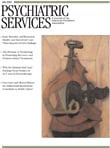Provider Communication in Split Treatment: A Survey
To the Editor: In July 2009 we conducted a survey of Manhattan-based, private-practice psychotherapists in regard to split treatment—that is, receipt of psychotherapy from one professional and psychotropic medication from another (
1 ). The survey addressed the question of whether communication between professionals engaged in split treatment takes place according to the traditionally taught recommendations for such care (
2,
3 ). This question is especially relevant in light of recently documented trends indicating that psychiatrists are providing less psychotherapy than ever before (
4 ) and that more Americans are taking psychotropic medication (
5 ). Given these patterns, and escalating concerns over health care costs, split treatment can be expected to continue to grow as the most common arrangement for patients receiving outpatient psychotherapy and medication.
We used the electronic mailing list of the Department of Psychiatry of the Weil-Cornell Medical College to distribute a nine-item anonymous survey to nonmedical psychotherapists in Manhattan. The accompanying e-mail encouraged recipients to distribute the survey to other nonphysician psychotherapists, which resulted in a greater number of respondents but prevented assessment of the response rate. Fifty-three completed questionnaires were returned, including 36 from respondents with a doctoral degree and 17 from those with a master's degree—predominantly psychologists and psychiatric social workers. The mean±SD number of years in practice was 21.15±5.20. A total of 1,197 patients were reported to be in active treatment at the time of the survey (range five to 65 per psychotherapist), of whom 434 (36%) were also receiving medication.
Among the 53 respondents, 24 (45%) reported that they had seen patients in psychotherapy in the past month who were taking medication and about whom they had never spoken with the prescribing psychiatrist (94 patients, or 22% of those receiving medication). When only patients taking medication who had been in psychotherapy for six months or longer were considered (N=320), 19 of the 53 respondents (36%) reported 72 patients (23%) about whom they had never communicated with the prescribing psychiatrist. When psychotherapists were asked about communication with the prescriber for patients who were in long-term psychotherapy (more than one year), only seven reported quarterly communication for all patients in this group, 18 reported no quarterly communication for any of these patients, and 28 reported quarterly communication for some.
Psychotherapists were asked to consider all occurrences of communication about patients and to indicate which professional usually initiated the occurrences. Twenty-three respondents (43%) reported that they initiated all instances of communication with the psychiatrist, one respondent (<2%) reported that the psychiatrist initiated all communication, and 29 (55%) reported that both professionals initiated communication about a patient when needed.
The limitations of the survey—the small sample, open distribution of the survey, heterogeneity of respondents, and some respondents' affiliation with a metropolitan university—may preclude definitive generalizations, However, the findings suggest the disturbing possibility that substantial numbers of patients receiving split treatment do not benefit from communication between the two professionals providing their care. Because health care delivery and reform remain prominent issues, the questions raised by our survey merit more formal, rigorous investigation.

